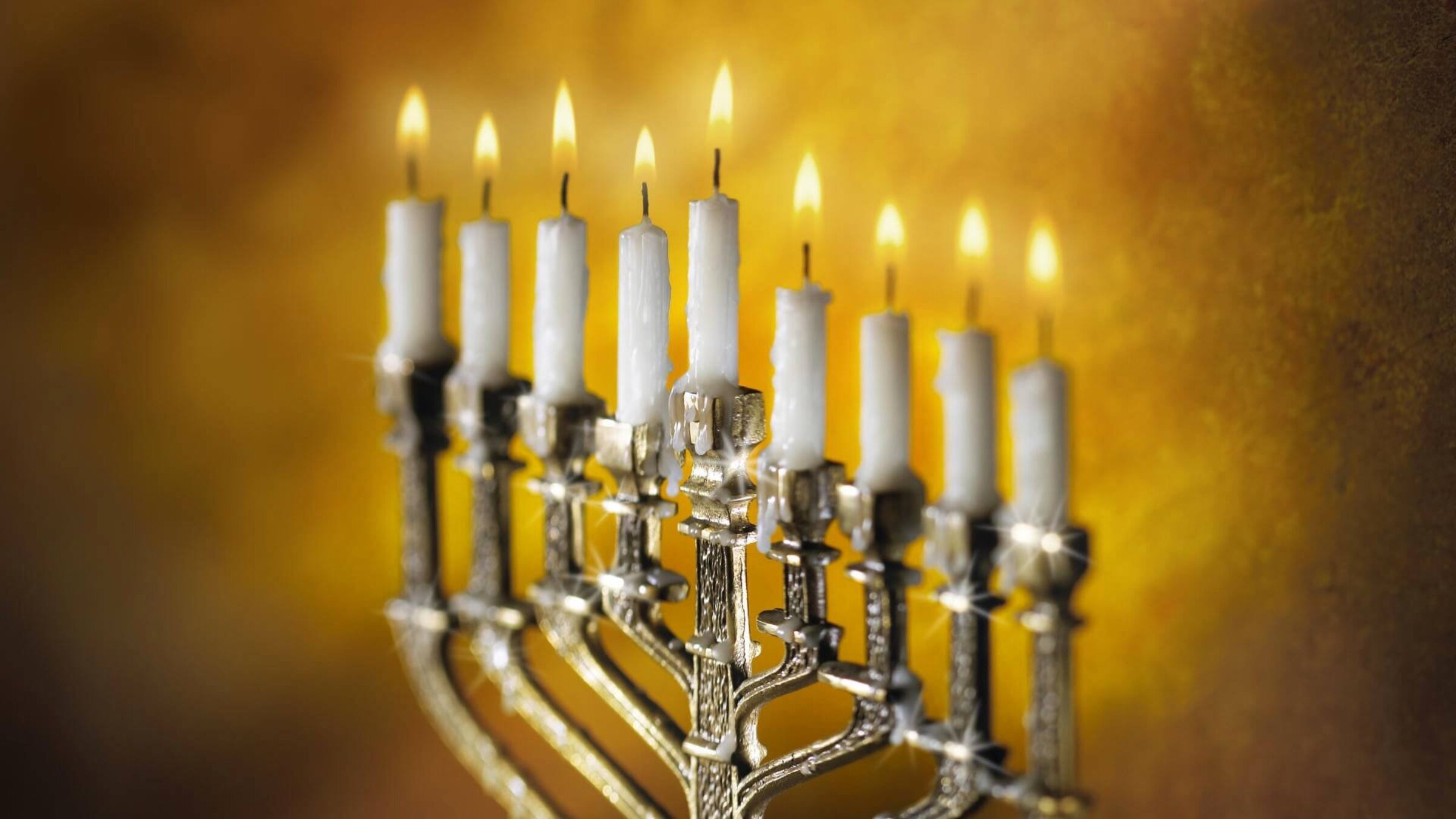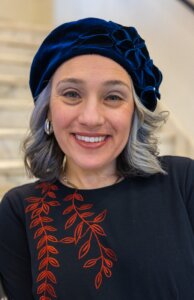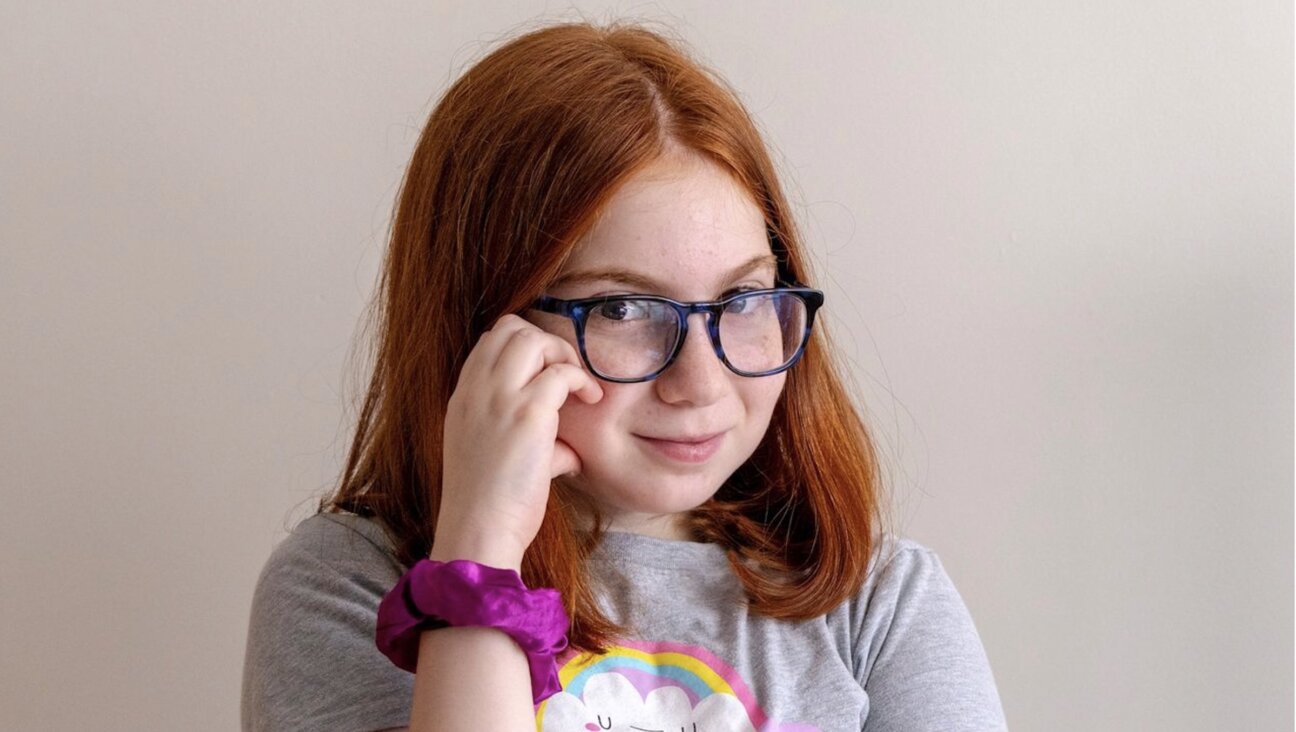Frankie’s Menorah (a Yiddish Hanukkah story)
The story, presented here in English translation, takes place during the California gold rush of 1849

Photo by goodfon.com
[This story, translated from the Yiddish, is the fifth in a series of Yiddish holiday tales for children that will run throughout the Jewish year 5785. Each story is prefaced with an introduction to provide useful context for the reader.]
As Hanukkah approaches, I’ve translated a Hanukkah story that takes place in an unusual setting for Yiddish fiction: the California gold rush of 1849.
In the story, “Frankie’s Menorah,” two prospecting families, both Jewish, have journeyed by sea from New York to San Francisco (possibly with an overland leg across Panama; the exact route is left unspecified). While their children become fast friends on the ship, their parents are divided by cultural and linguistic differences: Frankie’s parents, the Mannheims, are educated German Jews, while the other parents, the Aronsons, are impoverished immigrants from Poland.
Rabinowitz doesn’t shy away from cultural stereotypes in depicting their alienation. Mr. Mannheim, who takes pride in his engineering degree, is astonished that his expertise and state-of-the-art tools don’t translate into paydirt. He resents both the mining success and the traditional piety of the Aronsons, who welcome Frankie into their cozy Hanukkah observance.
This story feels like a timely reminder that Jews are so diverse that there will always be rifts in our communities. Despite their children’s friendship, the Mannheims and the Aronsons don’t come together for a Hanukkah party – at least not the first night of Hanukkah. But Mr. Mannheim softens enough to kindle the flame of a menorah that the Aronsons lent them, and recites the requisite blessings, acknowledging that the Aronsons have been kinder to his family than he has been to them. Sometimes the small miracle of introspection is enough.
Frankie’s Menorah
by Zina Rabinowitz
I’m going to tell you a story about two Jewish boys back in 1849, when there was a gold rush in America’s “Wild West.”
The fathers of the two boys kept their distance from each other, even though they were passengers on the same ship, which was carrying gold seekers from New York to San Francisco. The two boys, Frankie and Shmulik, became fast friends, not just because they were the only Jewish children on board but because they were the only children, period.
Frankie’s father, Mr. Mannheim, wasn’t thrilled that his son was playing with, the son of a newly arrived impoverished immigrant from Poland who barely spoke English — and with a terrible accent at that.
Frankie’s father was an immigrant himself, but he felt superior to Shmulik’s father. He, Mr. Mannheim, had come from Germany; he’d been well-to-do, had graduated with an engineering degree from a German university which he believed would be a real asset in his search for gold. He couldn’t fathom how Shmulik’s father, an uneducated Polish Jew, would manage. Did he really think that just because you learn Talmud, you can dig for gold?
Every night, Mannheim asked his son Frankie not to play with Shmulik; it wasn’t befitting. Frankie always promised his father to do as he was told. But every time Frankie left the cabin, he forgot his promise and ran off to look for Shmulik and play with him until Frankie’s parents called him for supper.
“That Shmulik has cast a spell on our boy,” said Mannheim, annoyed, to his wife. “Tonight in our cabin, I’ll settle the score with Frankie for not keeping his word.”
“What do you expect of the child?” Mrs. Mannheim said quietly to her husband. “If there were other children aboard the ship, he would play with them. A child needs to play after all.”
“Remember, Frankie,” Mannheim warned his son, “As soon as we leave the ship, no more Shmulik! You hear?” But as it happened, there was more Shmulik.
It turned out that the place where Mannheim set up his cabin was close to where the Aronsons, Shmulik’s parents, set up theirs. Mannheim was furious when Aronson even set up a place to pray near his cabin. Mannheim decided to relocate further out; that would also put some distance between his Frankie and that Shmulik.
But it wasn’t so simple. With so many people searching for gold, it was difficult to find a plot to set up a tent. The price of food was climbing too. And the gold wasn’t as easy to find as Mannheim had imagined when he’d left his factory in Baltimore. The scientific knowledge and tools he’d brought along were of little help. Others, who’d just dug with spades or their hands, using no special tools, had had more luck finding the sparkling metal.
Mannheim remained stubborn. He didn’t want to give up his methods. The money he’d brought along was running out. He even had to sell the jewelry his wife had brought along. His situation was dire indeed.
His rage toward his son grew when he saw him still palling around with Shmulik. He became even angrier once he found out that Shmulik’s father, Aronson, was having much better luck in finding gold.
One evening, Frankie quietly entered Shmulik’s cabin. He saw a menorah with eight branches, and one more branch above them. He had never seen anything like it.
“What is that?” Frankie asked. It wasn’t at all like the candlesticks Shmulik’s mother used to light candles at sundown on Fridays.
“This is a Hanukkah menorah,” Shmulik explained. “After all, today is Hanukkah. Today we light the first candle.”
Frankie didn’t answer, waiting silently.
Mrs. Aronson poured oil into the branches and prepared the wicks. In a loud voice, Shmulik’s father recited the blessings and lit the first candle, and everyone in the tent said: “Amen.”
Another menorah stood on a different table. This was Shmulik’s. When his father finished blessings the candles on the first menorah, Shmulik and his parents went over to the second table, and little Shmulik recited the blessings from a prayer book. He then kindled the first candle, and everyone again said: “Amen.”
Frankie stood there, amazed. He was so moved by what he had seen that he couldn’t speak. He nearly burst into tears. He was about to run out so nobody would see him crying, but Shmulik’s father stopped him.
“Where are you running off to, Frankie?” piped up Mrs. Aronson. “Nobody leaves my house without a Hanukkah dreidel and latkes.” Shmulik showed Frankie how to play dreidel, and his mother brought him some piping hot latkes. He had never eaten such delicious ones. Afterwards, they played dreidel.
Finally, it was getting late and Frankie decided to go home. Shmulik’s father spoke up and said, “Before you go home, Frankie, take along a menorah. The two menorahs you see are from our parents. But we have another one that we bought ourselves. We’ll lend it to you, take it home, and if you want, you can keep it as our gift. We’ll give you a prayer book to go with it, and your father can recite the blessings with you. That way, you can bless the Hanukkah candles with your family.”
Carrying the menorah and prayerbook in his arms, Frankie ran home. Cheerfully, he entered the cabin and found his parents sitting there, dejected. “Papa!” he exclaimed. “I just played dreidel and ate latkes. Now you have to bless the Hanukkah candles; it’s Hanukkah today. I want it to be Hanukkah for us, just like it is in Shmulik’s family.” Frankie fell on his father’s neck and burst into tears.
Frankie’s outburst so moved his parents that both his father and mother started to cry too.
Frankie put his menorah on the table, took some oil and poured it into the branches. He took his father’s hand, led him over to the menorah, and gave him the prayer book. His mother came over and her eyes glistened.
With trembling hands, Frankie’s father opened the prayer book, quietly recited the blessings and kindled the first Hanukkah candle in Frankie’s menorah, which the Polish Jew, the new immigrant, had given him as a gift.
The Yiddish story is part of the collection Der Liber Yontef (“Our Precious Holidays”), compiled by Zina Rabinowitz in 1958

















